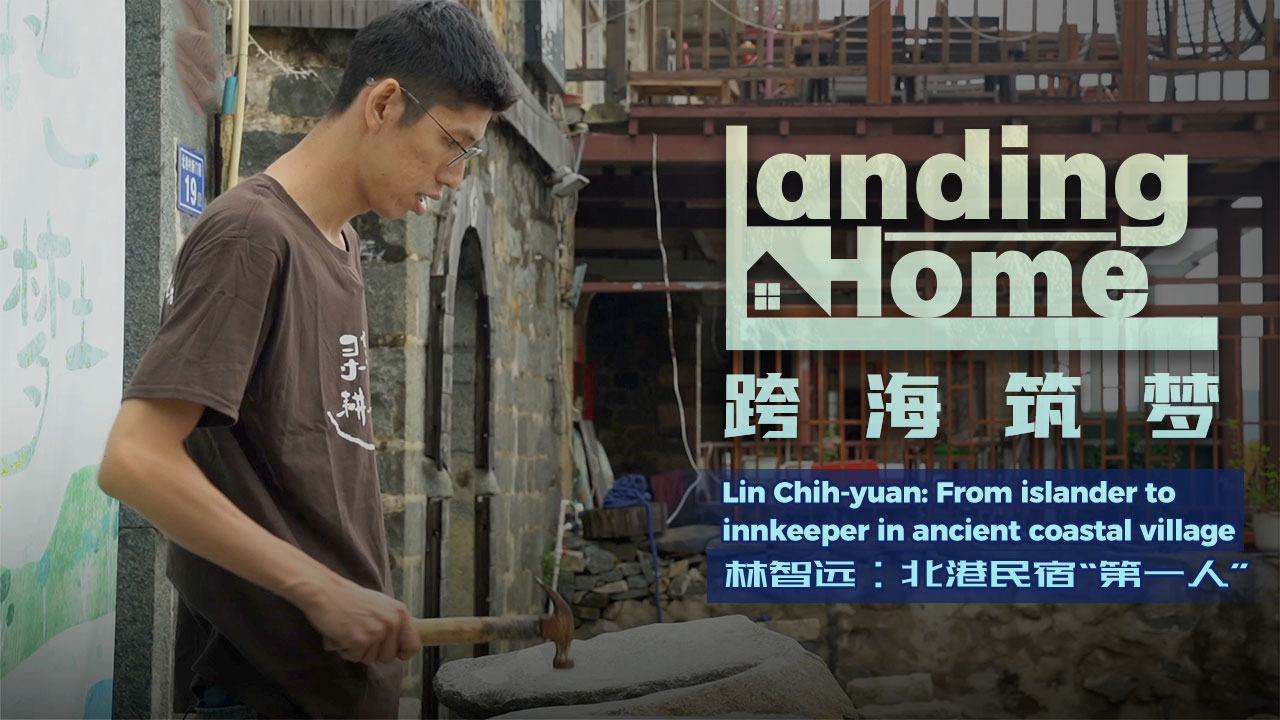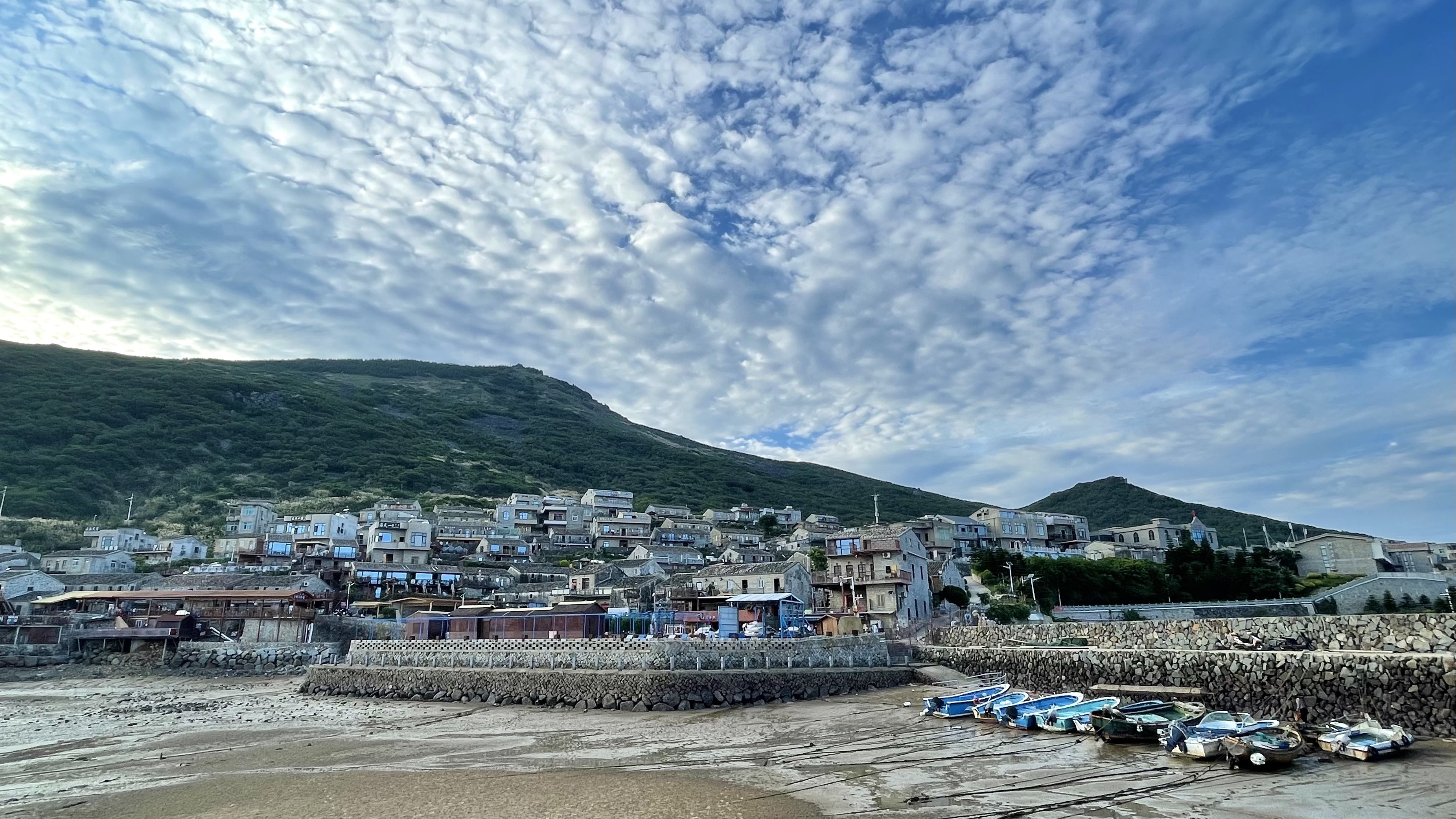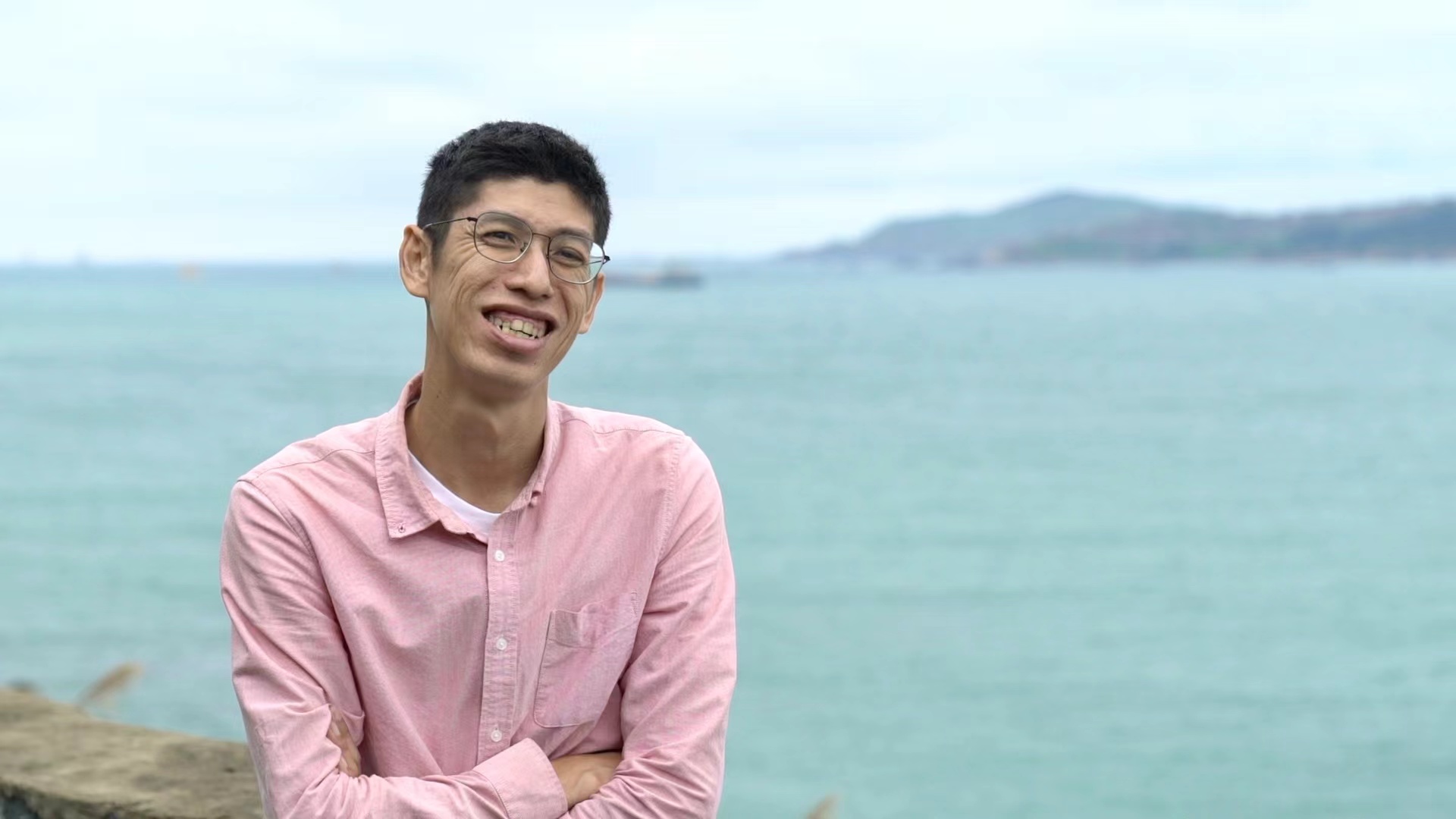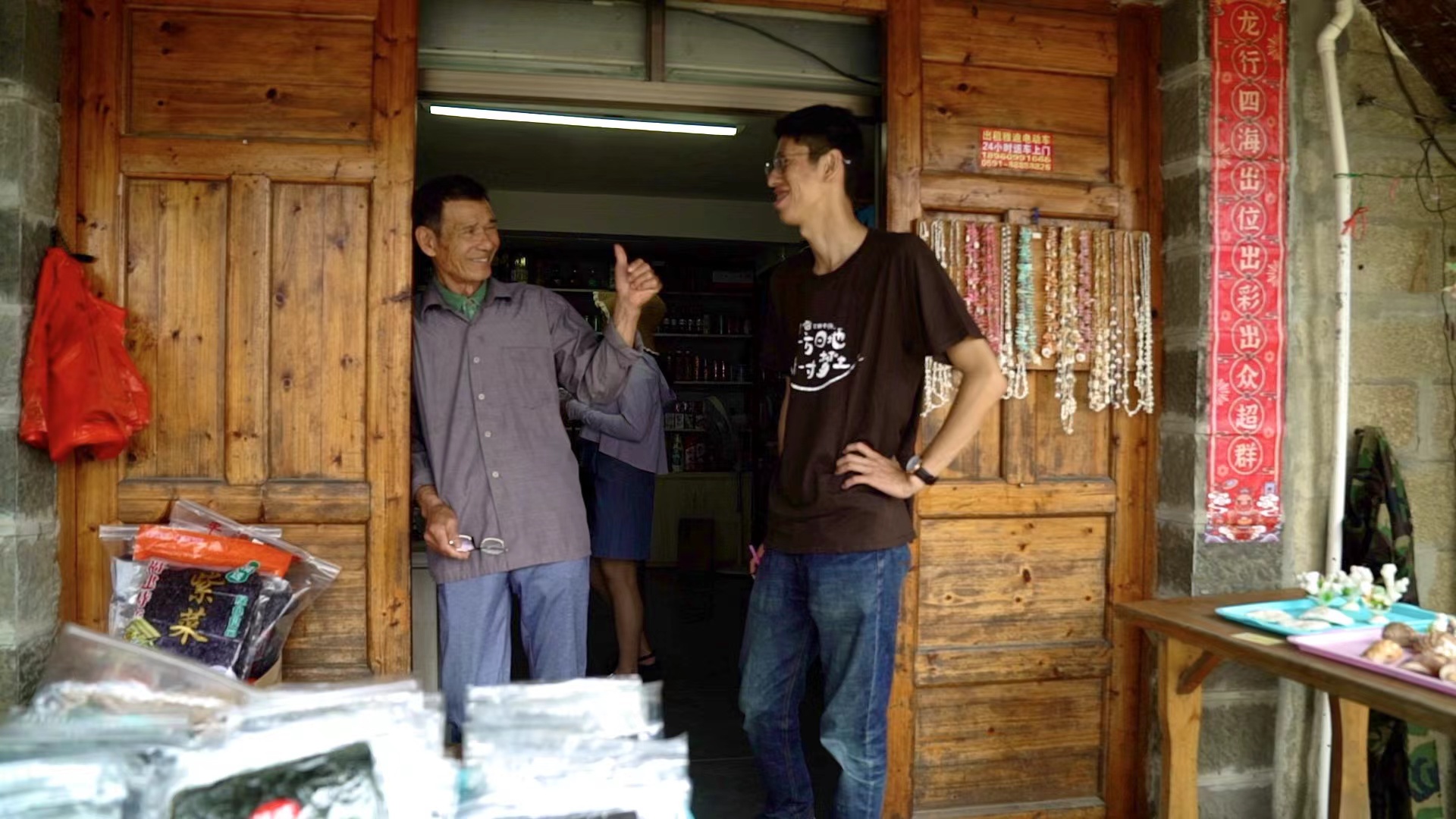07:11

Editor's note: CGTN's new series "Landing Home" profiles young adults from China's Taiwan region who live, study and work on the Chinese mainland. Chasing their dreams across the Taiwan Straits, they are professionals from all walks of life. The series spotlights their stories in, hopes for and contributions to their new home.
"The island grows no grass, but stones," a traditional Chinese ballad says of Pingtan Island.
The island floating off China's southeastern coast is known for its stones, which helped build fort-like houses, but left the soil undesirable for agriculture.
But the rocks have been an inspiration for Lin Chih-yuan and his team, who saw in them a valuable opportunity to enliven an almost abandoned village.
Born in Chiayi City on Taiwan island, Lin made his first trip to Pingtan County, southeast China's Fujian Province, with his parents in April 2015. The county comprises 126 islands and islets scattered in the Taiwan Straits and is the mainland's closest part to Taiwan, at about 126 kilometers away from Hsinchu City on the island region.

Beigang Village is a historic fishing village situated on Pingtan Island's northeastern corner, where old stone masonry buildings stand close to each other on a hillside by the sea, in Fujian Province, southeast China. Hong Yaobin/CGTN
Beigang Village is a historic fishing village situated on Pingtan Island's northeastern corner, where old stone masonry buildings stand close to each other on a hillside by the sea, in Fujian Province, southeast China. Hong Yaobin/CGTN
Later in the same year, Lin traveled to Beigang, a village on the island's northeastern corner where old stone masonry buildings stand close to each other on a hillside by the sea.
The young man was mesmerized by the stunning scenery and warmth of villagers. "At that time, we decided to settle in Pingtan," Lin told CGTN.
For decades, the sturdy houses protected generations of islanders from violent tropical storms. But the village was gradually falling silent as the young left for big cities with better job opportunities, leaving the elderly behind.
The locals entrusted Lin with a secret, telling him that some stones on nearby mountains could make musical sounds. "When you tap on the stone, it will make the sound of gongs and drums. After we came here, we found what they said was true,” Lin noted.

Lin Chih-yuan from Taiwan region opens Beigang Village's first ever guesthouse, speaks to CGTN. Hui Jie/CGTN
Lin Chih-yuan from Taiwan region opens Beigang Village's first ever guesthouse, speaks to CGTN. Hui Jie/CGTN
Lin had a light-bulb moment. "This place is amazing! [It would be great] if more tourists could see it," he thought to himself.
So one year after settling down, Lin invited some of his friends from both sides of the Straits to join his team and opened the first guesthouse in the fishing village in 2016. He named it "Singing Stones."
Keep it real and rock on
"I believe that if we want to be part of the village's growth, a B&B (bed-and-breakfast) is a channel for tourists to get to know the village easily," Lin said. "It was simple at first. We rented three or four houses in the village and gradually started to do our business."
The young team also hoped to help conserve the authenticity of the old buildings. They rented the oldest places in town and fitted them with modern amenities without erasing their character. They kept some objects like dressers and closets, and transformed discarded items, like old boat decks and valves, into decorations.
They also followed a strict rule of occupying half of the space they rented and leaving the other half to the original owners. "It is, in essence, their home where their family used to live," Lin noted, adding that it was of utmost importance to maintain friendliness with the locals.
In this sense, the team has also launched tourism services related to the maritime culture of the island to engage locals and enrich visitors' experiences.
"This approach is good for the development of the village. Only with the active participation of locals and their integration [in this project], can the village liven up."
Better village, better life
Lin believes that rural vitalization is about improving life in the villages.
By the end of 2020, the Fuzhou-Pingtan railway linking Fujian's provincial capital Fuzhou to the island began operations after seven years of construction, allowing visitors from the mainland and Taiwan to travel more conveniently across the Taiwan Straits. It also made Pingtan a new popular destination.
"From the two village committees, and the cadres and villagers at grassroots level, to the new teams about to join us, and the young people from Taiwan region like us who came across the Straits, everyone is indispensable for the village's development," Lin noted.

Lin Chih-yuan has built close friendships with local people in Beigang Village, Pingtan County, Fujian Province, southeast China. Zhang Wanbao/CGTN
Lin Chih-yuan has built close friendships with local people in Beigang Village, Pingtan County, Fujian Province, southeast China. Zhang Wanbao/CGTN
"It is a rural area filled with human kindness," Lin told CGTN. "We are living here. [We should] treat locals as our own family as we are the new villagers in Beigang."
"I hope that through my small efforts, more people can see the unique beauty of the ancient places," he added.
Reporters: Hong Yaobin, Zhang Wanbao, Wei Tianyao
Directors: Hong Yaobin, Zhang Wanbao
Cameramen: Zhang Wanbao, Hui Jie, Hong Yaobin
Video editor: Zhang Wanbao
Copy editors: Nadim Diab, Moosa Abbas
Cover photo designer: Li Wenyi
Chief editors: Chen Ran, Liu Yuqi
Supervisor: Zhang Shilei